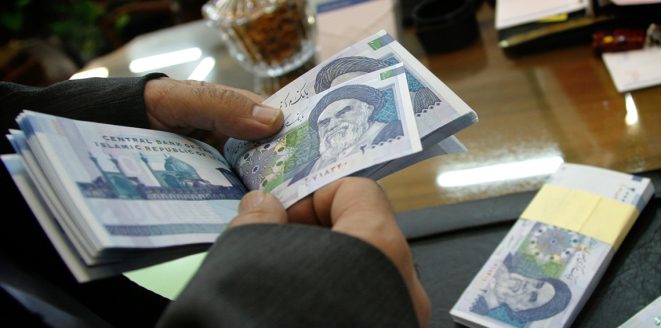Catherine Gaber
PARIS – The first phase of US-imposed sanctions on Iran will kick off today, August 6.
International companies will start a massive boycott of the Islamic Republic. Leading the boycott in this first phase will be companies working in the fields of gold, aluminum, steel, coal, computer software, automotives and car spare parts. The second phase of the sanctions will start on November 4.
Preliminary repercussions
The boycott is having its toll on the Iranian riyal whose value dropped for the fifth time in two weeks, equaling 112,000 a US dollar on Monday. This is the second highest currency devaluation or inflation rise in the world. The annual inflation rate in Iran has reached 210%. This very high inflation rate boils down to Iran’s overdependence on food imports from other countries in the last months.
This rising inflation has been met with anger on the streets. Strikes, sit-ins and protests are roiling Iranian capital, Teheran, and other large cities. Demonstrators are protesting against food and basic commodity shortages and the rise in commodity prices. There is also a rise in the number of Iranians who want to leave their country. Some Iranians are even applying for asylum in other states.
Possible closure of Strait of Hormuz
Iran has started naval drills in the Strait of Hormuz and even threatened to block the strait, an important passageway for almost a quarter of the world’s trade.
US President Donald Trump has, meanwhile, warned against buying Iranian oil, a painful blow to the Iranian economy.
Yemen war and support to Houthis
Battles continued to rage on in the eastern Yemeni Port City of al-Hudaydah last week. The battles left 55 people dead and more than 170 others injured. A series of blasts also rocked a number of populated areas in the city, a fish market and the vicinity of the al-Tahwra Hospital.
Al-Hudaydah has been controlled by the Houthis who receive support from Iran. A coalition led by Saudi Arabia and the United Arab Emirates tries to liberate the city.
Houthi control of al-Hudaydah gives the Iran-backed group a foothold in an area of major strategic importance. This control allows the Houthis to control humanitarian and medical aid arriving in the city. The Houthis are also turning the al-Hudaydah Port into a launch pad for attacks against ships navigating the Red Sea and the strategic Bab al-Mandeb Strait, one of the most important passageways for international trade.
The Houthis have recently fired rockets at Saudi oil tankers off the strait. They also kidnapped a French national off the coast of Yemen. The national, 54, left France in August 2017 alone on his sailboat on the road to India. He anchored off Djibouti to get some rest. Nonetheless, when his boat neared the Bab al-Mandeb Strait, the Houthis arrested him and took him hostage, according to the French Foreign Ministry.
Potential Arab coalition victory
Iran spent huge amounts of money on its wars in Yemen, Syria and Iraq. Now, questions are being raised on whether the US-imposed sanctions will influence Iran’s ability to maintain these wars and consequently change the balance of power.
The balance of power in Yemen started to witness some change with the killing of Saleh Ali al-Sammad, a senior Houthi political figure, under an airstrike by the Arab coalition between April 19 and 27. Al-Sammad’s death has weakened the intelligence apparatus of the Houthis. This was probably why Houthi leader Abdel Malak al-Houthi had summoned Abdel Rab Saleh Garfan, the national security head of the Houthi militia. Al-Houthi asked Garfan to formulate a new plan to create tension within Saudi Arabia, including through terrorist attacks.
Garfan considered winning tribes living in the border area between Saudi Arabia and Yemen to his side. He also considered intensifying Houthi operations in Eritrea.
Garfan, meanwhile, works to carry out surveillance operations and collect information about the UAE Assab military base in Eritrea, through support from Iran. The base is instrumental for UAE and Arab coalition operations in Yemen.
Cracks are emerging within the Houthi bloc and some of the members of the group are voicing support to the Arab coalition. The Head of the Houthi Political Council Mahdi Hussein al-Mashat, called for holding an emergency meeting of the council recently. Surprisingly enough, a few of the senior members of the group attended the meeting.
French efforts to resolve the crisis
A French diplomatic delegation met Houthi leaders in July to convince them to sit on the negotiation table in September. All Yemeni rivals were also invited to the same meeting on Yemen in Geneva on September 6.
Mindful of their weaknesses, the Houthis agreed to attend the meeting.








































admin in: How the Muslim Brotherhood betrayed Saudi Arabia?
Great article with insight ...
https://www.viagrapascherfr.com/achat-sildenafil-pfizer-tarif/ in: Cross-region cooperation between anti-terrorism agencies needed
Hello there, just became aware of your blog through Google, and found ...